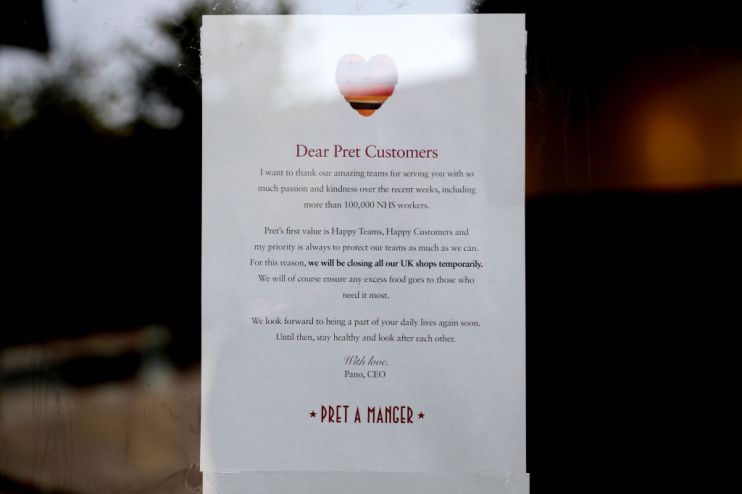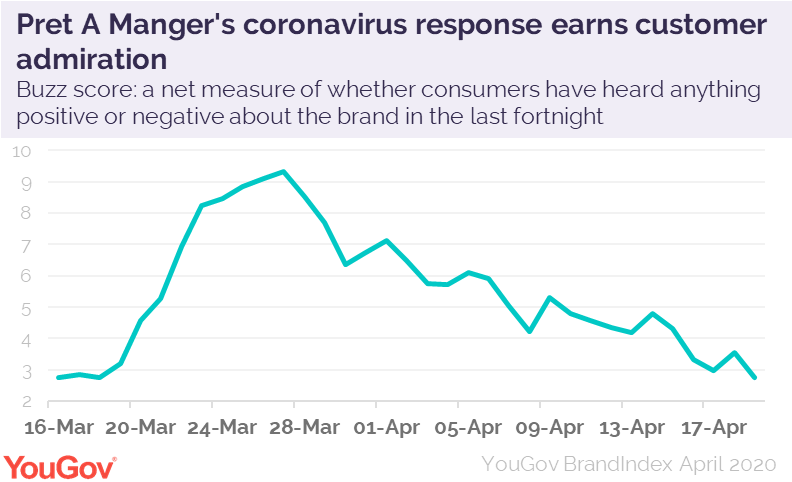Coronavirus: Pret will see the benefits of doing the right thing

The coronavirus crisis has required businesses to alter their COVID-19 strategy frequently in line with changing government advice. Some businesses have had more success than others with striking a good balance and doing the right thing in the eyes of the public, particularly at the start of the crisis in March. One brand which has successfully achieved this is sandwich and coffee chain Pret a Manger.
On 16 March, Boris Johnson urged Britons to work from home and avoid pubs and restaurants. At this point Pret announced new measures to keep staff and customers safe, such as extra sanitising, but remained open. Just two days later Pret made its shops takeaway-only to protect staff and customers, while receiving praise by customers on social media for offering NHS workers free hot drinks and 50% off all food.

According to YouGov BrandIndex data, this led to a 3.7 point increase in Pret’s weekly Buzz scores (a net measure of whether consumers have heard anything positive or negative about the brand in the last fortnight) and a 3.5 point increase in Impression scores (whether someone has a positive or negative impression of a brand) from the week beginning 9 March to the week beginning 16 March.
However, by 21 March Pret had shut all shops following the PM’s formal closure order. Between 16-29 March, Pret’s daily Buzz scores increased by 6.5 points and Word of Mouth Exposure scores (whether someone has talked about the brand with friends and family in the last two weeks) increased by 2.6 points, implying the public supported these decisions.
Despite the lockdown extension, on 15 April Pret announced that ten stores situated near hospitals would be opening to help feed frontline workers, with the NHS discount reinstated. Impression scores for the brand have since increased by 3.7 points, demonstrating the positive impact these decisions are having on Pret’s public perception.
On the other hand, two brands whose coronavirus responses leave a lot to be desired are Waterstones and WH Smith, who both refused to close shops before the lockdown was enforced. Instead both brands classed their stores as ‘essential retailers’ – despite staff complaints – leading to a decrease in positive public perception. WH Smith’s Buzz scores dropped by 3.9 points between 16-25 March while Waterstone’s Impression score dropped 4.3 points.